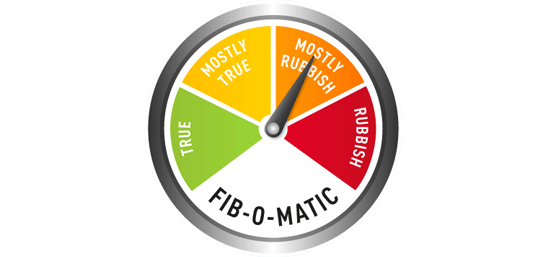The Senate is investigating the impact of another round of changes to the private health insurance rebate. As they did last year when the government legislated to means test the rebate, the opposition and some industry groups are claiming the changes will drive up health care costs, force consumers to drop their cover and place strain on the public system.
The government wants to exclude the lifetime health cover charge (which is applied to people who take out private health cover after turning 30) from the rebate. That move would save the government $386.3 million over four years and cost consumers an average of $116 per year more.
In submissions to the inquiry, Private Health Care Australia claimed the measure will “inevitably result in many people choosing either to downgrade or terminate their cover, thereby relying more on the public hospital system for their health care need”. Insurers HBF and GMHBA also warned people would drop their cover and public health admissions would rise.
The claims are familiar: last year PHCA warned means testing would force premiums up by 10% and cause 1.6 million people to drop their cover, including 175,000 people in the first year. The claims were repeated across the media and by the opposition; Tony Abbott claimed in Parliament that 6 million people would lose their cover.
But eight months on those claims are looking rather rubbery.
The most recent data from the Private Health Insurance Administration Council shows the number of people taking out private health cover grew, just as it has every year for over a decade: the number of people with general cover increased by 104,280 and those with hospital cover by 83,128 in the September 2012 quarter.
Crikey contacted health insurers to find out whether eight months after the introduction of the means test that prediction of 175,000 people yanking their cover is coming true. Those we spoke to said they hadn’t noticed any drop-off in numbers. Many consumers prepaid their fees to avoid being hit with the means test; others would only find out they had lost the rebate at tax time.
But tellingly they also said they wouldn’t have any way of knowing how many people dropped their policy due to the changes, since they have no way of knowing why people withdraw. Net levels of coverage are unlikely to change, they claim.
Insurer NIB reckons the impact of the rebate will be “very modest”. Its analysis indicates just 0.6% of NIB customers dropped their cover above normal rates. NIB CEO Mark Fitzgibbon says the changes are playing as the insurer had expected.
“NIB always thought the impact would be moderate. Our experience hasn’t been anything extraordinary,” he told Crikey. While he believes the full impact won’t be known until the next tax year, he says it’s “extremely manageable”.
So were the claims made by the opposition and PHCA overcooked? “In our view,” Fitzgibbon said. NIB is less concerned about the changes themselves than the nature in which they’ve been introduced: “Our frustration with these type of changes are they’re largely piecemeal.”
In his view income, advertising and competition are bigger drivers of consumer behaviour than price rises associated with reforms; proposed changes to the lifetime health cover charge won’t have the impact some are claiming.
As for the claim premiums will rise due to the rebate, last week’s announcement of a 5.6% rise sits comfortably in the 5-6% range of most premium increases — last year’s rise was 5.06% and the previous year was 5.57%.
The Senate inquiry is due to report back on the legislative changes in March, no doubt prompting more claims of people abandoning health cover. To date, the claims have been mostly rubbish.









I belong to a fund and I personally have remained with a fund since the late seventies, I dislike what has now occurred, the two tier health service. What happens is that the highest level of cover encourages the vested interest, Dr’s ownership of the proliferating Private Hospitals. Your cover returns you less than 33% of your Dr’s fees same with dental. If you are ill/need surgery and require admission, go to a public hospital and allow the hospital to collect the bed fees. Some money back to the public system and make sure you are in a centre of excellence. a teaching hospital = centre of excellence!! where the businessmen/Drs learnt all they know except ethics!
Could you send this to Rob Bransby the CVEO of HBF in WA who got a huge write up in the West for beating up this issue
When the rebate was introduced in 1999 it was quickly absorbed in premium increases and no one was better off except, probably, private hospital shareholders and medical specialists. I think it’s a bit like first home buyer rebates – prices simply increase to take account of increased buying power afforded by the rebate.
The rebate should be frozen and phased out, with savings going into the public hospital system.
Annual premium increases at double the rate of inflation are not affordable in the long term – or even the medium term.
Unless cost increases in the surgical, medical and health industries are brought back in line with community expectations and ability to pay, there will inevitably be substantial reductions in percentages of the population who are insured.
To pretend otherwise is lunacy.
Oh, before I go…
NIB’s chairperson is not, IMHO, a reliable source. Check his history.